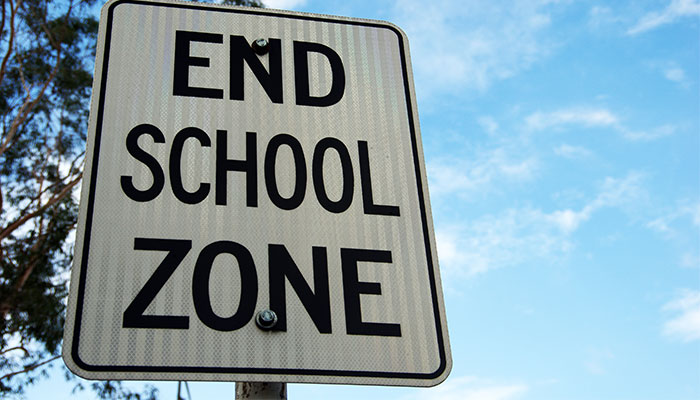The last fortnight has seen parents fill their social media feeds with happy snaps featuring grinning school-leavers at their high school graduation.

More than 70,000 students finish school each year in NSW. And while celebrations are on hold as students face their final exams, spare a thought for the many adults feeling a sense of profound loss, as their years of parenting a school student come to an end.
Macquarie University psychologist Victoria Mule says these feelings are a perfectly rational and normal response to the end of this era.
“Feeling sad is a really common and very normal reaction for parents at this time,” says Mule, who is also a clinic therapist at MindSpot, Australia’s first free online and telephone mental health clinic.
“We can draw on some theoretical perspectives to help us understand this grief, and one really useful one is attachment theory,” she says.
Macquarie University psychology professor Nick Titov says people will normally experience a mixture of feelings about the end of an era in their parenting, and it's appropriate that sadness is part of that. Professor Titov says it’s important to distinguish between low mood and the more serious ongoing challenge of mental illnesses such as clinical depression and anxiety.
“Watching our children grow and lean into their own lives ... can be a stark reminder that we can’t control every aspect of our family's lives, and we need to stay flexible about changing our expectations,” says Titov, who launched MindSpot in 2012.
New babies spark an ‘attachment-activating event', says Mule. “A parent’s attachment to their child first happens when they are having a new baby, whether that’s when a pregnancy starts to become very real, or when they first had that baby some 17 or 18 years ago,” she says.
“But we know that when there’s a situation that involves a breaking of that attachment between parent and child, such as the start of school, and also maybe the end of school – that can also be an attachment-activating event which naturally brings up a whole lot of difficult emotions.”

End of an era: Finishing school is the end of a life stage for both students and their parents, and can represent an attachment-activating event for some mothers or fathers, says MindSpot therapist Victoria Mule.
Mule says that these feelings emerge in response to a perceived threat to that parent-child attachment that was formed so long ago. “That’s why such strong emotional reactions can be triggered.”
Losing your identity
Mule says that while most teenagers are currently more emotional about the stress of upcoming exams than concepts around end-of-school, for most parents, their school-parent life is done.
Parents differ in the extent of their connections to their child’s school, their friends, and other parents – but whether they are keen school committee members and fundraising volunteers or just show up at the odd awards night, there’s still a sense that this particular stage in their life has come to an end.
This is an uncertain time for parents and when they dwell on what their relationship with their child might look like now, it can be frightening and bring on anxiety.
"This is an uncertain time for parents and when they dwell on what their relationship with their child might look like now, it can be frightening and bring on anxiety," she says.
“That can be particularly tough for parents whose identity is so wrapped up in being a mother or being a father and doing things together with their children,” she says.
Finding ways to cope
Mule says that it’s important to remember that, for most people, this ‘breaking of attachment’ triggers a very instinctual and emotional grief reaction.
“Feeling sad about the end of your child’s schooling is a normal part of our human experience, so ‘dealing with it’ can just involve recognising that it’s ok for these feelings to come up – and also that this strong emotion is a temporary thing,” she says.

Graduation: MindSpot therapist Victoria Mule says while students may be excited to start post-school life, it is normal for some parents to feel sad - but if strong emotions don't pass, it could be time to seek help. Image credit: Suzanne Kirby
It can also be helpful to talk to other parents who are going through that same shared experience, Mule adds.
Mule says that it can also help to mentally prepare for the future by going through some scenarios for the next stage of life.
What’s the practical side of our future together when my child finishes school? Are they going to train or study or work or travel somewhere away from home, or will I still see them every day? Think about how the next chapter will look, and try to think about how you might react emotionally, says Mule.
If the feelings of sadness don’t start to ease up and you don't feel okay after a few days or weeks, or if a parent feels overwhelming loneliness that doesn’t seem to pass, it could be helpful to reach out to support services like their GP or a counsellor or psychologist, she says.
“When emotions begin to overwhelm you or if you’re not feeling any better over time, it’s important to connect with others to get some support.”
MindSpot is a free service for Australian adults experiencing difficulties with anxiety, stress, depression, and low mood, and provides assessment and treatment courses, or helps people find local mental health services that offer support.
Lifeline provides compassionate support for people in crisis. Call 13 11 14 (24-hour counselling, information and referrals).
Professor Nick Titov is executive director of MindSpot, the free national online mental health clinic established at Macquarie University in 2012 and funded by the Australian Government.



